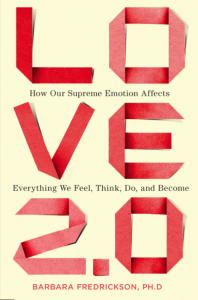A little more than a week ago, the molecular geneticist and Buddhist monk Matthieu Richard was dubbed the “happiest man in the world” by researchers at the University of Wisconsin. The criteria for this title was the level of gamma waves produced by his brain, made possible by years of meditation. While meditating on compassion, Ricard’s brain produces an unprecedented level of gamma waves. This research on neuroplasticity says that the brain is moldable—that our mental and physical habits affect neural pathways.
How we think about our emotions could be part of our happiness. Earlier, I wrote about Seligman’s theory of human flourishing as PERMA (Positive emotions, Engagement, positive Relationships, Meaning, Accomplishment), noting that “P” or positive emotions are defined differently across societies.
Shame, the feeling of “I can’t believe I did that,” is one emotion that illustrates this. According to Bernard Williams, what arouses shame is something that typically elicits from others contempt or derision or avoidance.
Shame is also an intensely social emotion: it is associated with being negatively evaluated either by the self or others because of failing to meet standards and norms regarding what is good, right, appropriate, and desirable. Aristotle noted, “no one feels shame before small children or animals.” A person’s evaluation of how others evaluate her is the basis of both pride and shame. Social monitoring is, in this sense, continuous, because people internalize it: people monitor themselves by social standards even when others aren’t literally doing it. Erving Goffman’s classic sociological study argued that people desire to present themselves in certain ways. When they can’t support that self-presentation, they feel shame. Feelings motivate individuals to conform to normative and situational pressures. When people do not go by social rules, this is a cue that they don’t have a strong allegiance to the group. He argued that rules of social order actually dictate which feelings a person might have.
Jeanne Tsai and Ying Wong review the cross-cultural psychology research, finding differences between societies in the use of shame. Parents in Chinese culture are more likely to use shaming techniques in their educational strategies than are parents in U.S. culture. Chinese parents readily discuss and disclose children’s transgressions in front of strangers to induce shame and to socialize children to behave properly. In Chinese, there are 113 shame-related terms, indicating that it is a highly complex concept. Shame has different consequences across cultures. In some societies, shame causes people to be defensive and take self-protective actions like disengaging from others, while in others, shame causes more relationship-building.
Why such differences? Tsai and Wong conjecture that the differences stem from conceptions of the self. Americans tend to think that being negatively evaluated by others or oneself is bad and should be avoided. But this assumes an individualistic model of the self, that there is a stable self that is bounded, separate from others, and defined by stable personal characteristics. In other societies, people define themselves in terms of their connections with other people. The self is more malleable and more easily subject to change and influence by others.
What are some philosophical roots for these differing conceptions?
Aristotle recognizes an important role for a sense of shame in a flourishing life. But, while he says that the virtuous person would feel shame if he or she did something disgraceful, an even more virtuous person would not do what is shameful in the first place. Shame is a good thing in imperfect humans, but it is not, in and of itself, a part of human flourishing.
In contrast, as Bryan Van Norden argues, classical Chinese thought regards shame as the flip side of righteousness. Shame is integral to cultivating virtue, and people with that view have more positive emotions associated with it. Confucian thought values constant self-cultivation and improvement, so changes to the self as explicitly valued and expected. Shame is therefore a bad feeling in the short run, but it is expected and even good because it serves the long-term goal of self-improvement. For Mencius, shame is the emotion or attitude that is characteristic of righteousness: “The shamefulness of being without a sense of shame is shameless indeed.”
Although someone who feels shame in China might initially feel bad, it might not be long before he or she feels good about that shame: they know that they are being corrected and that it ultimately leads to being a better person. If shame is more desirable in some societies (like China), then feeling shame is defined as more of a positive emotion there than it is in other places (like the United States).
If there is an objective state of human flourishing to discover, how do we decide what emotions to define as “positive”? Should shame should be considered a positive emotion?












